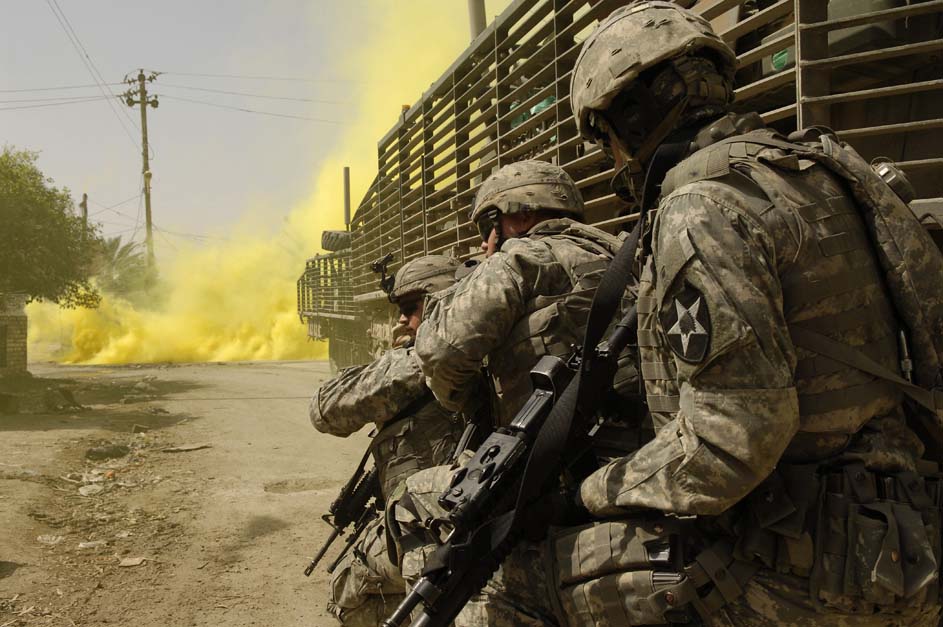Originally published at MintPress News.
WASHINGTON — The United States could be fighting in dozens of conflicts around the world or none at all, depending on how one defines “war” or “conflict.” And despite repeated failures of U.S. military intervention to create global stability, American troops continue to be sent into more nations and more battles, usually without congressional approval.
Timothy McGrath, writing in September for MintPress News, made the claim that the U.S. is fighting between zero and 134 wars, depending on the definition of the word “war.”
The notion that the U.S. is involved in zero acts of war hinges on the premise that the country hasn’t officially declared war — with formal congressional approval — since 1942.
Yet a 2014 report by Nick Turse, a journalist and author on military history, claims that the U.S. engaged in a “secret war” in 134 countries, including both bases and nations where U.S. special forces have been deployed to assist or train local forces. This represented a 123-percent increase under the Obama administration over previous presidents.
Just counting U.S. military bases, an April investigation from Quartz found that, according to the Defense Department’s latest Base Structure Report, “the US has bases in at least 74 countries and troops practically all over the world, ranging from thousands to just one in some countries (it could be a military attaché, for instance).” Reporter Annalisa Merelli added, “By comparison, France has bases in 10 countries, and the UK has bases in seven.”
More recently, Turse highlighted the continued expansion of American military interests in Africa. In a report published Thursday, he detailed the expansion of the Joint Combined Exchange Training program, which sends Navy SEALs and other Special Operations forces into African countries alongside local militaries. Under this program alone, U.S. forces have spent time in a dozen African countries over the last three years:
In all … Special Operations forces spent nearly 2,200 days in 12 countries under the JCET program alongside more than 3,800 African soldiers.
The frequency of these missions seems to be increasing. While 20 occurred in Africa in 2013, troops had already been deployed on 22 JCET missions on the continent by July of this year, Turse reported.
He also revealed that the JCET program repeatedly assisted militaries with a known record of human rights abuses, and may even have enabled further abuse:
From October through November 2011, for example, Green Berets were deployed in Mali to work with 150 local troops. For 45 days, they practiced patrolling and desert warfare, as part of a JCET, according to the Pentagon documents …
That same year, the State Department called out Mali due to “several reports that the government or its agents committed unlawful killings” as well as “arbitrary and/or unlawful deprivation of life.” In early 2012, with the next [joint African military] exercise to be held there, America’s troops were already in Mali when a US-trained officer overthrew the democratically elected government.
Another report by Turse, published this week in The Intercept, found even broader global deployment of troops through JCET. He estimates these special forces troops will be deployed on a total of 174 missions in 65 countries this year, ranging from Romania to El Salvador to Cambodia, and those figures are expected to continue to rise in 2016.
